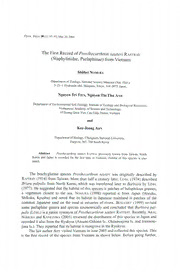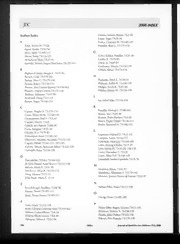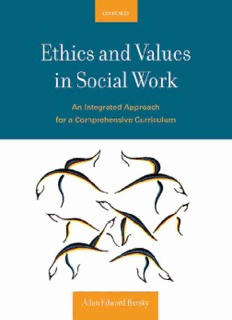
ethics and values in social work PDF
Preview ethics and values in social work
Ethics and Values in Social Work This page intentionally left blank ETHICS AND VALUES IN SOCIAL WORK An Integrated Approach for a Comprehensive Curriculum allan edward barsky 1 2010 3 Oxford University Press, Inc., publishes works that further Oxford University’s objective of excellence in research, scholarship, and education. Oxford New York Auckland Cape Town Dar es Salaam Hong Kong Karachi Kuala Lumpur Madrid Melbourne Mexico City Nairobi New Delhi Shanghai Taipei Toronto With offi ces in Argentina Austria Brazil Chile Czech Republic France Greece Guatemala Hungary Italy Japan Poland Portugal Singapore South Korea Switzerland Thailand Turkey Ukraine Vietnam Copyright © 2010 by Oxford University Press, Inc. Published by Oxford University Press, Inc. 198 Madison Avenue, New York, New York 10016 www.oup.com Oxford is a registered trademark of Oxford University Press. All rights reserved. No part of this publication may be reproduced, stored in a retrieval system, or transmitted, in any form or by any means, electronic, mechanical, photocopying, recording, or otherwise, without the prior permission of Oxford University Press. Library of Congress Cataloging-in-Publication Data Barsky, Allan Edward. Ethics and values in social work : an integrated approach for a comprehensive curriculum / Allan Edward Barsky. p. cm. Includes bibliographical references and index. ISBN 978-0-19-532095-4 1. Social service—Moral and ethical aspects. 2. Social workers—Professional ethics. I. Title. HV10.5.B345 2010 174′.93613—dc22 2009002629 1 3 5 7 9 8 6 4 2 Printed in the United States of America on acid-free paper To Jocelyn Adelle: May you be inspired by good values and virtues throughout your life. This page intentionally left blank Preface A MESSAGE FOR STUDENTS personal satisfaction from knowing that we are performing our service in a manner that pro- Each year during student orientations at Florida motes social justice, human growth, and respect Atlantic University, the director of our social for the dignity and worth of all individuals. work program asks professors to introduce the This textbook is designed to help you integrate courses they teach and explain why students may social work values and ethics into all aspects of be interested in this subject matter. I describe your social work curriculum and ultimately your how I teach professional values and ethics, the practice in the fi eld. Rote memorization of rules study of “what is good” and “what is right” in and laws is neither suffi cient nor interesting. how we practice social work. I suggest that stu- Instead, this textbook invites you to engage per- dents should be very interested in this subject sonally in a range of learning experiences: refl ect- matter because it can save them the emotional, ing on your own values, analyzing case situations, social, and fi nancial pain of being involved in role-playing social work-client interviews, and malpractice lawsuits and professional disciplin- pondering over challenging ethical dilemmas. ary hearings. In truth, learning social work val- As you work through the exercises in this text- ues and ethics can help social workers avoid legal book, remember that learning can be amusing and ethical problems with clients. More impor- and imaginative. Push yourself to think through tant, when social work practice is guided by the situations from other people’s perspectives. Do high ideals of social work values and ethics, we not be afraid to play the devil’s advocate, stating enhance the quality of services that we provide positions or asking questions that others might for our clients and communities. We also derive fi nd politically incorrect. Be creative when you vii viii PREFACE think of different ways to resolve ethical issues. of professional development will continue long Take risks during role-plays. Classroom exercises after you have completed your degree, so it is give you an opportunity to test different ideas, important to know where to fi nd ethics and val- skills, and strategies without posing risks to real ues resources to support you on this journey. clients. The fi rst time I counseled a suicidal cli- The image on the cover of this textbook, ent, I had no prior experience with the ethical by Canadian artist Doris Cyrette, is entitled and clinical issues that arose—not even in a role- “Playmates.” The notion of playmates suggests play. I knew suicide intervention from a theoreti- a group of people who have fun, fooling around, cal perspective, but I had little understanding and building relationships as they engage in of suicide intervention from an experiential various games and activities. Although there one. Use the case scenarios in this textbook and are many serious aspects to social work values raise your own questions to help bridge the gap and ethics, we should not take ourselves too between theory and practice. seriously. In order to manage ethical issues, we If you are looking to this textbook for simple, need to be able to play nicely. Even if we do not defi nitive answers for how to handle diffi cult share the same values and beliefs, we share this ethical issues, you may be disappointed, at least world, and we need to learn how to proceed in initially. Although social workers have a range of a fair, just, and cooperative manner. Note how laws, agency policies, and ethical codes to guide some playmates on the cover are bigger than them toward ethical practice, in many situa- others—yet none dominate the others. In fact, tions, the correct response to an ethical problem the more powerful birds may be looking out for is not clear. In some cases, there may be confl ict- the interests of the more vulnerable birds. Note ing ethical or legal obligations. In other cases, also how the playmates are headed in different there may be no way to accurately predict which directions—yet out of apparent chaos, they are course of action will lead to the greater good—or sharing space without colliding or blocking each avoid the greater harm. Being able to manage other’s course. They have found general rules of uncertainty, and the stress caused by uncer- engagement and principles to guide their rela- tainty, is crucial. This textbook does not neces- tionships. Enjoy the role-plays, readings, and sarily provide you with specifi c answers to your exercises throughout this textbook, and have ethical problems, but it does provide you with a fun learning about values and ethics throughout range of tools and strategies that can guide you your professional careers. toward solution. Different programs may use this textbook in different manners, assigning different chapters A NOTE FOR INSTRUCTORS or modules to different courses. By having a single ethics textbook, you will be able to refer As we all learned in our introduction to social back to earlier materials to review the basics, or work courses, social work developed as a unique refer forward to other materials to explore ethi- profession in the late nineteenth and early twen- cal issues at higher or more in-depth levels. Use tieth centuries. Social work pioneers such as the index to see how different ethical issues are Mary Richmond, Jane Addams, Helen Harris applied in different contexts of practice (e.g., Perlman, Florence Kelly, Charles Levy, and how confi dentiality may be applied to work with Whitney Young each emphasized the impor- individuals versus families, groups, or commu- tance of ethics and values in guiding all forms nities). Use the glossary to help you understand of practice. From its historical mandate of ame- key concepts. Finally, use the websites and bib- liorating social problems among the most vul- liography at the end of this textbook to locate nerable populations in society to its ongoing further readings to assist with class assignments dedication toward facilitating social well-being and issues that may arise in practice. There is a and social justice, the profession of social work myriad of resources online and in scholarly jour- has been defi ned by its commitment to particu- nals, with practical information and thought- lar ethical ideals (NASW, 1999). Not surprisingly, provoking debates of ethical issues. Your journey ethics and values comprise a core component of PREFACE ix social work education (Council on Social Work suggest that social work educators “start with the Education, 2008). Although modern schools of student,” ensuring that their educational activi- social work have access to a number of solid text- ties fi t with the students’ current stage of knowl- books on social work values and ethics (Congress, edge and receptiveness to learning (Swindell & 1999; Corey, Corey, & Callanan, 2007; Dolgoff, Watson, 2007). This textbook adopts a “devel- Loewenberg, & Harrington, 2009; Linzer, 1999; opmental approach,” meaning that students Reamer, 2006b), this textbook is the fi rst that will experience certain types of learning in provides a comprehensive plan for teaching and earlier courses and other types of learning in learning ethics and values across the social work later courses, helping them work toward higher curriculum. levels of understanding, application, analysis, Given that values and ethics are already and integration of ethics and values content. interspersed throughout social work courses and These stages of learning are informed by theo- existing textbooks, one might ask why a compre- ries of moral, cognitive, affective, and behavioral hensive textbook on ethics and values is needed. development. Theories of moral development, Having taught at four different schools of social for instance, suggest that infants are not born work, I have found that most programs provide with a concept of right and wrong (Gibbs, 2003; students with a solid, general understanding of Kohlberg, Levine, & Hewer, 1983). Eventually, values and ethics from their theory and practice they fi rst learn about right and wrong by follow- courses. Unfortunately, there are many gaps in ing particular authorities (parents, teachers, reli- traditional social work curricula. Course content gious and cultural teachings, etc.). By analogy, on values and ethics is often repetitive. Students when novice social workers begin their social might be offered content on confi dentiality in work education, they are not familiar with the three different courses, for instance, but each specifi c ethical standards governing social work- time the content covers the same basics, never ers and the social work profession. They need to moving to the next levels of understanding, appli- understand the authorities on social work ethics, cation, and analysis. Often, students do not have including what types of consequences will ensue a chance to learn ethical analysis at an advanced if they do not follow certain ethical guidelines. level unless they take a stand-alone course on Initially, novice social workers may follow a advanced ethics (Kaplan, 2006b). This textbook social work code of ethics or agency policy simply is designed to remedy these problems by provid- because that is the ethical standard, agency rule, ing a comprehensive set of educational materials or law to be followed. As novices develop into that will take students from basic to advanced more autonomous professionals, they will need levels, using an explicit theory for teaching and to make more nuanced decisions about ethical learning ethics and values. Schools of social work behavior, based not only on following particular that adopt this textbook will be able to fully inte- rules or standards but on their ability to analyze grate ethics and values into their existing courses complex problems (Kaplan, 2006a). Developing in a comprehensive manner. social workers need to learn the rationale behind Part I of this textbook focuses on content for ethical standards and policies so they can make students in BSW and MSW foundation courses, reasoned choices. Accordingly, this textbook consistent with the Educational Policies and initially provides novice social workers with Accreditation Standards of the Council on Social relatively “black and white” ethical principles Work Education. To tailor course expectations to and standards that they should ordinarily follow. the different needs of BSW and MSW programs, Once they have a basic understanding of these, professors should consult the Instructor’s Manual, this textbook will introduce them to more chal- which offers specifi c suggestions for courses at lenging issues that cannot be resolved by simply both levels. Part II of this textbook focuses on following one particular rule or standard. Thus, content for students taking advanced or concen- they will learn to assume full responsibility for tration courses in their MSW programs. decisions they make. Social work educators often instruct their stu- Theories of cognitive development suggest dents to “start with the client.” Likewise, I would that knowledge acquisition occurs through
Description:The list of books you might like

A Thousand Boy Kisses

Better Than the Movies

The 5 Second Rule: Transform your Life, Work, and Confidence with Everyday Courage

The 48 Laws of Power

Convergent close-coupling calculations of two-photon double ionization of helium
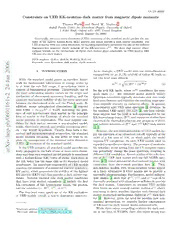
Constraints on UED KK-neutrino dark matter from magnetic dipole moments

SQE Services Agreement

Union Government, Extraordinary, 2010-01-12, Part II-Section 3-Sub-Section(ii), Ref. S. O. 57(E)

Life and Adventures of Peter Wilkins Vol I by Robert Paltock of Clements Inn

süleyman gündüz
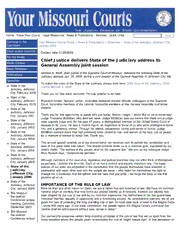
State of the Judiciary Address 2006
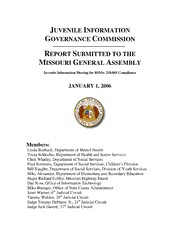
Juvenile Information Governance Commission Report Submitted to the Missouri General Assembly 2005
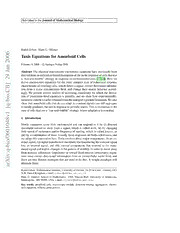
Taxis Equations for Amoeboid Cells
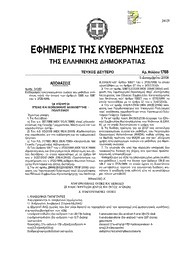
Greek Government Gazette: Part 2, 2006 no. 1768
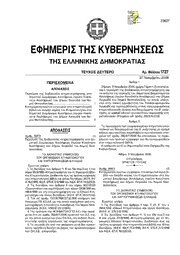
Greek Government Gazette: Part 2, 2006 no. 1727
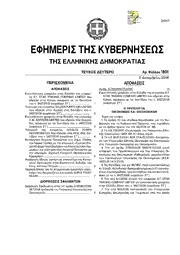
Greek Government Gazette: Part 2, 2006 no. 1801

University of Alberta Faculty of Law yearbook (1993)

Living Village Kioni Village, Ithaca, Greece
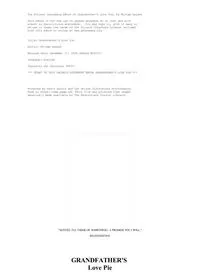
Grandfathers Love Pie by Miriam Gaines
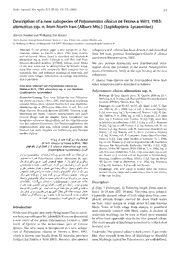
Description of a new subspecies of Polyommatus ciloicus de Freina & Witt, 1983: alamuticus ssp. n. from North Iran

